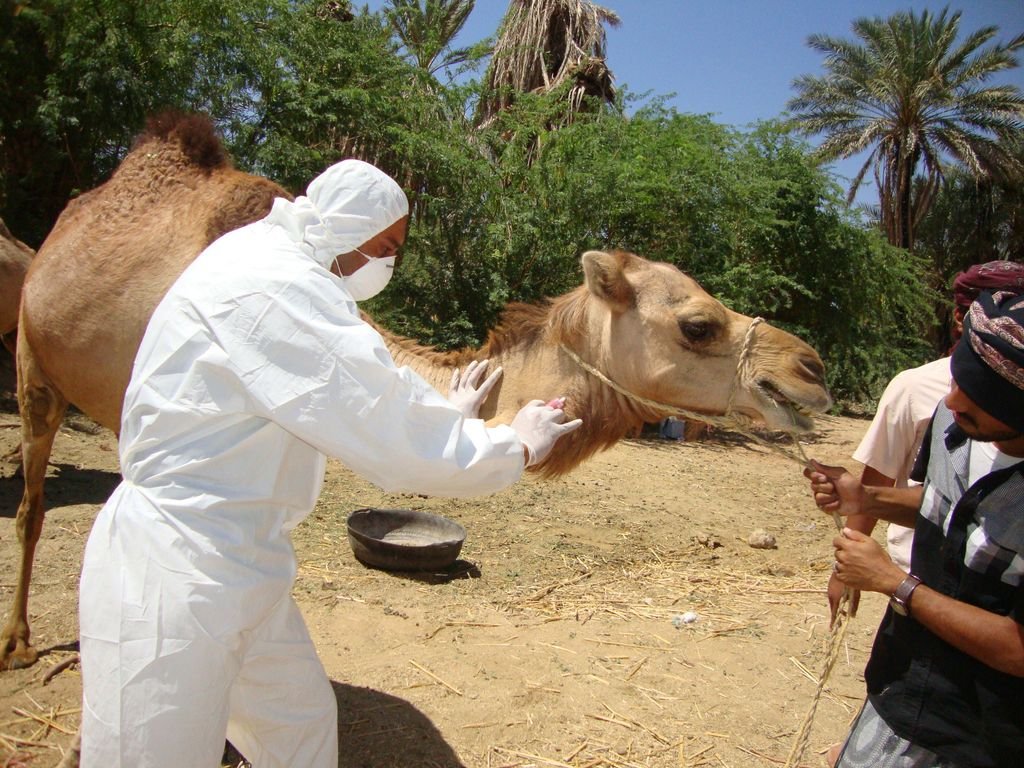The Benefits of Regular Vet Check-Ups: Beyond Emergencies
Regular vet check-ups are essential for maintaining the health and well-being of your pet. Beyond emergencies, these check-ups offer numerous benefits, including early detection of health issues, preventive care, financial savings, and emotional support for pet owners. Here are the key takeaways from this article:
Key Takeaways
- Regular vet check-ups help prevent health issues and detect them early.
- Comprehensive vet check-ups include physical examinations, vaccinations, parasite control, dental care, nutritional assessment, and behavioral evaluation.
- Regular vet check-ups can prevent costly emergencies and save money in the long run.
- Vet check-ups provide peace of mind, build trust and confidence, reduce anxiety and stress, and enhance the bond with your pet.
Why Regular Vet Check-Ups Are Important

Prevention is Better Than Cure
When it comes to your pet’s health, prevention is key. Regular vet check-ups play a crucial role in identifying and addressing health issues before they become serious. These check-ups include vaccinations, parasite prevention, and early detection of diseases. By staying proactive, you can ensure your pet’s longevity and quality of life. In addition to these preventive measures, your vet can provide valuable guidance on how to best care for your pet’s specific health needs.
Early Detection of Health Issues
Regular vet check-ups play a crucial role in the early detection of health issues in your pet. By scheduling routine visits, you can prevent these issues from snowballing into larger problems. Common examples of health issues that can be detected early include arthritis, dental disease, lumps or bumps, heart conditions, and obesity. Being proactive in your pet’s healthcare allows for more effective treatment and a higher chance of a positive outcome.
During a vet check-up, your veterinarian may also perform other wellness services such as vaccines, parasite testing, microchipping, or geriatric screenings. These additional services are important for maintaining your pet’s overall well-being. It’s important to note that the cost of these services may vary and are not typically included in the price of a routine check-up.
By prioritizing regular vet check-ups, you are taking a proactive approach to your pet’s health and ensuring they receive the necessary care to live a happy and healthy life.
Maintaining Optimal Health
Regular vet check-ups play a crucial role in maintaining the optimal health of your furry friend. These check-ups go beyond just treating emergencies and focus on preventive care. By scheduling regular visits to the vet, you can ensure that your pet receives comprehensive and thorough care. This includes physical examinations to assess their overall health, vaccinations and preventive medications to protect against diseases, parasite control to keep them free from harmful pests, dental care to maintain oral health, nutritional assessment to ensure they are getting the right diet, and behavioral evaluation to address any potential issues. These check-ups help in early detection of health issues, allowing for more effective treatment. They also help in building a strong relationship with your vet, who can provide guidance and support in keeping your pet healthy and happy.
Building a Strong Relationship with Your Vet
Regular vet check-ups, vaccinations, and preventive tests like bloodwork and parasite checks are essential for your pet’s health. A wellness exam is meant to be a quick check-in and to catch anything at the start to help your loved one without a voice get the professional medical attention they deserve. Enrichment activities, toys, and spending quality time with your pet can keep them mentally and emotionally healthy. Venture out into the world together, take them with you wherever you can, teach them "proper etiquette" when in public, teach
The Comprehensive Nature of Vet Check-Ups

Physical Examination
During a physical examination, your veterinarian will perform a comprehensive, nose-to-tail body system review, which includes:
- Eye exam with ophthalmoscope
- Ear exam with otoscope
- Oral/dental health exam
- Body weight and muscle tone assessment
- Skin, coat and external parasite check
- Heart and lung auscultation
- Basic orthopedic exam
These exams are crucial for detecting early signs of illness and establishing a baseline for future health monitoring. By thoroughly evaluating your pet’s overall condition, vital signs, and organ functions, your veterinarian can provide more accurate diagnoses and develop effective treatment plans. Additionally, regular physical examinations help build a strong relationship between you, your pet, and the veterinary staff. It’s an opportunity to address any concerns, ask questions, and ensure your pet’s well-being. Remember, prevention is better than cure, and regular check-ups play a vital role in maintaining your pet’s optimal health.
Vaccinations and Preventive Medications
Vaccinations are crucial to prevent various diseases in pets. Consult your veterinarian if your pet needs a tailored vaccination schedule, but commonly, pets need vaccinations for diseases like rabies, distemper, parvovirus, and kennel cough. An ounce of prevention is worth a pound in cure. Implementing regular vaccinations and preventive medications can significantly reduce the risk of your pet contracting these diseases. By staying up to date with vaccinations, you are taking proactive steps to protect your pet’s health and well-being. It’s important to note that preventive care goes beyond vaccinations. Your veterinarian can also provide guidance on other preventive medications, such as flea control and parasite prevention. These measures are essential for maintaining your pet’s overall health and preventing the spread of diseases. By following your veterinarian’s recommendations and implementing preventive care, you are ensuring that your pet stays healthy and happy for years to come.
Parasite Control
Parasite control is a crucial aspect of your pet’s overall health and well-being. Preventing parasites such as fleas, ticks, and heartworms is essential for their comfort and longevity. At Companion Animal Hospital, we prioritize parasite prevention and offer a range of effective treatments. Our customized vaccination protocols and parasite prevention programs are tailored to your pet’s unique lifestyle and exposure risks. Whether it’s through topical treatments, collars, or oral medications, we have the expertise to recommend the most suitable options. We discourage using ‘over the counter’ preventatives as they are typically weaker in prevention. Regular checks and maintaining a clean environment are also important in keeping parasites at bay. Consult with our veterinary team to ensure your pet is protected from these pesky intruders.
Dental Care
Regular dental checkups and cleanings are crucial in keeping your pet free of dental diseases. At our champion vet clinic, we recommend and offer routine dental checkups and cleanings to proactively manage plaque and tartar buildup. These visits, conducted by our skilled champion vets and support staff, not only prevent periodontal disease but also give us the chance to evaluate and reinforce your pet’s overall health regimen. Education on home dental care practices is also an important part of our service at companion animal hospital middletown de.
Nutritional Assessment
When it comes to your pet’s health, nutritional assessment plays a crucial role. A balanced diet is essential for their overall well-being. It’s important to understand the nutritional needs of your furry friend based on their age, size, and breed. Consulting your vet can help you tailor a diet that suits their specific needs. Additionally, learning to read dog food labels can help you make informed choices. Look for high-quality protein sources and avoid artificial additives. Regular exercise is also important for maintaining a healthy lifestyle.
Behavioral Evaluation
Consistency is key in establishing lasting habits. Dealing with Common Behavioral Issues From barking to chewing, dogs may exhibit behaviors that challenge their owners. Addressing these issues with patience and positive reinforcement is essential. Consult a professional trainer if needed, ensuring a harmonious relationship with your canine companion. Understanding Dog Body Language Key Cues for Happiness, Fear, and Discomfort Dogs communicate primarily through body language. Understanding their cues enhances your ability to respond to their needs and emotions. A wagging tail, relaxed posture, and bright eyes indicate happiness, while a tucked tail, cowering posture, and dilated pupils may signal fear or discomfort. Strengthening the bond through communication is crucial for a healthy and fulfilling relationship with your pet.
The Financial Benefits of Regular Vet Check-Ups

Preventing Costly Emergencies
When it comes to your pet’s health, prevention is key. Regular vet check-ups can help identify potential issues early on, preventing matting and skin issues before they become more serious. By addressing these issues proactively, you can save yourself from costly emergency vet visits down the line.
In addition to regular check-ups, it’s important to maintain a healthy grooming routine for your pet. This includes regular brushing to prevent matting and skin issues. By keeping your pet’s coat clean and free of tangles, you can help prevent skin irritations and other related problems.
Another important aspect of preventing costly emergencies is maintaining a balanced diet for your pet. Providing them with a nutritious diet can help support their overall health and prevent various health issues. Consult with your vet to determine the best diet for your pet’s specific needs.
Remember, investing in regular vet check-ups and preventive care can save you both time and money in the long run. By addressing potential issues early on and taking proactive measures, you can ensure your pet’s well-being and avoid unnecessary expenses.
Early Intervention Saves Money
When it comes to your pet’s health, early intervention can have a significant impact on your finances. By addressing health issues at the earliest stage possible, you can prevent them from escalating into more serious and costly conditions. Regular vet check-ups allow your veterinarian to detect any potential health problems early on, giving you the opportunity to take prompt action. This can save you money in the long run by avoiding expensive treatments or surgeries that may be necessary if the condition worsens. By staying proactive and seeking early intervention, you can ensure that your pet receives the necessary care while also saving money on healthcare costs.
Long-Term Savings on Healthcare
When it comes to your pet’s healthcare, taking a proactive approach can lead to long-term savings. Regular vet check-ups allow for overall health and wellness monitoring, which can help detect potential issues early on. By addressing these issues in their early stages, you can prevent them from developing into more serious and costly conditions. Additionally, vet check-ups often include nutritional assessments to ensure your pet is receiving the proper diet for their specific needs. This can help prevent future health problems and save you money on expensive treatments. Another way to save on healthcare costs is by considering a pet wellness plan. These plans allow you to budget for routine care expenses with a low monthly cost, eliminating the financial burden of unexpected veterinary visits. By investing in your pet’s preventive care, you can not only save money in the long run but also provide them with the best possible veterinary care.
Insurance and Vet Check-Ups
Having an insurance policy for your pet can provide financial security and peace of mind. With an insurance policy active, you can pay your vet bills out-of-pocket and then file a claim for reimbursement with the insurance company. Some pet insurance plans even pay the vet directly, making the process even more convenient. Another option to consider is a pet wellness plan, which covers your pet’s preventative and routine care, such as annual checkups, shots, spaying or neutering, grooming, and teeth cleanings. These plans can help you save money on regular vet visits and ensure that your pet receives the necessary care to stay healthy.
The Emotional Benefits for Pet Owners

Peace of Mind
We understand that as a pet owner, your peace of mind is of utmost importance. Knowing that your furry friend is healthy and well-cared for can bring you a sense of comfort and reassurance. Regular vet check-ups play a crucial role in ensuring the well-being of your pet. These check-ups allow your vet to monitor your pet’s overall health, detect any potential issues early on, and provide the necessary preventive care. By staying proactive and addressing any concerns promptly, you can help your pet live a long and happy life.
In addition to regular check-ups, there are other ways you can contribute to your pet’s peace of mind. Providing enrichment activities, such as interactive toys and quality time together, can keep them mentally and emotionally stimulated. Taking your pet on outings and teaching them proper behavior in public can also help them feel more confident and secure.
Remember, your vet is there to support you and your pet every step of the way. If you have any questions or concerns about your pet’s well-being, don’t hesitate to discuss them with your vet. They can provide guidance on anxiety management options and offer advice tailored to your pet’s specific needs.
Herbal Dog Grooming Products on Amazon can also be beneficial in promoting a calm and soothing environment for your pet. These products are designed to be gentle on your pet’s skin and can help reduce stress during grooming sessions. Consider incorporating them into your pet’s grooming routine for an added sense of relaxation and well-being.
Building Trust and Confidence
Building a strong bond with your dog involves spending quality time together, engaging in activities they enjoy, and being attuned to their emotions. Dogs thrive on companionship, making this connection vital for their overall well-being. Understanding their cues enhances your ability to respond to their needs and emotions. A wagging tail, relaxed posture, or perked ears are signs of happiness, while cowering or growling may indicate fear or discomfort. Strengthening the Bond Through Communication
Establishing trust through clear communication fosters a deeper connection and mutual understanding.
Socializing your dog from an early age is crucial for their well-rounded development. Exposure to various environments, people, and other animals helps them become confident and adaptable. It also reduces the likelihood of behavioral issues and fear-based aggression. Introduce your dog to new experiences gradually, providing positive reinforcement and rewards to create positive associations. Consult a professional dog trainer for guidance on socialization techniques and strategies.
Choosing the right dog food is essential for their health and well-being. A balanced diet, tailored to their nutritional needs based on age, size, and breed, supports their overall health, energy levels, and longevity. Consult your veterinarian to determine the best diet for your dog and ensure they receive the necessary nutrients.
Regular exercise is crucial for maintaining your dog’s physical and mental well-being. Engage in activities that suit their breed and energy level, such as daily walks, playtime, or interactive toys. Exercise helps prevent obesity, promotes cardiovascular health, and stimulates their mind. Make exercise a part of your daily routine to keep your dog happy and healthy.
Grooming is an important aspect of caring for your dog. Regular brushing helps maintain a healthy coat, prevents matting, and reduces shedding. It also allows you to check for any skin issues, parasites, or abnormalities. Introduce grooming gradually to ensure your dog feels comfortable and relaxed during the process. If your dog doesn’t enjoy baths, consider using dry shampoo or seeking professional grooming services.
Regular vet check-ups are essential for your dog’s overall health and well-being. Routine examinations, vaccinations, parasite control, dental care, and nutritional assessments are all part of comprehensive vet check-ups. These check-ups help detect any health issues early on, prevent costly emergencies, and ensure your dog receives the necessary preventive care. Building a strong relationship with your vet allows for open communication, trust, and personalized care for your dog’s specific needs.
By prioritizing these aspects of care, you can build trust and confidence with your dog, creating a strong and fulfilling bond.
Reducing Anxiety and Stress
Pets can experience anxiety and stress during vet check-ups, but there are ways to help them manage it. It’s important to create a calming and welcoming environment to encourage a sense of relief for both you and your pet. Practice handling your pet gently and stay calm yourself, as they look to you for cues on how they should feel. Discuss anxiety management options with your vet to ensure your pet’s comfort during check-ups. Additionally, engaging in enrichment activities, spending quality time together, and teaching them proper etiquette in public can contribute to their overall mental and emotional well-being.
Enhancing the Bond with Your Pet
Building a strong bond with your pet is essential for a fulfilling and meaningful relationship. Spending quality time together, engaging in activities they enjoy, and being attuned to their emotions are key factors in establishing this connection. Dogs thrive on companionship, so making an effort to understand their needs and provide the love and attention they crave is crucial. Effective communication plays a vital role in strengthening the bond. Paying attention to your pet’s cues and responding appropriately helps build trust and mutual understanding. Socializing your pet with others from an early age is also important for their well-rounded development. It exposes them to different environments and people, helping them become more confident and adaptable. By enhancing the bond with your pet, you create a harmonious and joyful partnership that brings immense happiness to both of you.
Pet ownership has numerous emotional benefits for individuals. Research has shown that owning a pet can reduce stress, anxiety, and depression. Pets provide companionship and unconditional love, which can help alleviate feelings of loneliness and improve overall well-being. Additionally, interacting with pets has been found to increase levels of oxytocin, a hormone associated with bonding and relaxation. At Whisker Wellbeing, we understand the importance of the emotional bond between pets and their owners. That’s why we offer a range of holistic and natural care products, including CBD, hemp, and other natural options, all designed to enhance the physical and emotional quality of life of pets. Visit our website to explore our products and discover how Whisker Wellbeing can help improve the emotional well-being of your beloved pet.
Conclusion
Regular vet check-ups are essential for maintaining the health and well-being of your pet. These check-ups allow for early detection of health issues, ensuring prompt treatment and preventing them from becoming more serious. In addition to routine exams, vets also provide important wellness services such as vaccinations, parasite testing, and microchipping. It is recommended that pets visit the vet at least once a year for a wellness exam. By prioritizing preventive healthcare and staying vigilant for signs of illness, you can help your pet live a long and happy life. Remember, your furry friend relies on you for their healthcare needs, so make sure to schedule those regular check-ups and provide them with a comfortable living space. Together, we can ensure the well-being of our beloved pets.
Frequently Asked Questions
Why are regular vet check-ups important?
Regular vet check-ups are important because they allow for the prevention of health issues, early detection of problems, maintenance of optimal health, and the building of a strong relationship with your vet.
What does a comprehensive vet check-up include?
A comprehensive vet check-up includes a physical examination, vaccinations and preventive medications, parasite control, dental care, nutritional assessment, and behavioral evaluation.
What are the financial benefits of regular vet check-ups?
The financial benefits of regular vet check-ups include preventing costly emergencies, saving money through early intervention, long-term savings on healthcare, and the availability of insurance options.
What are the emotional benefits for pet owners?
The emotional benefits for pet owners include peace of mind, building trust and confidence, reducing anxiety and stress, and enhancing the bond with your pet.
How often should pets have vet check-ups?
Pets should have vet check-ups at least once a year for routine wellness exams. However, the frequency may vary depending on the specific needs of the pet.
What should I expect during a veterinary visit?
During a veterinary visit, you can expect a routine check-up exam, discussions about any abnormal findings, and the benefits of additional treatments. The vet will also perform a nose-to-tail examination and address any health concerns.






